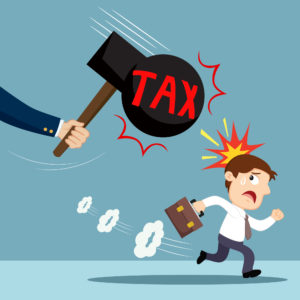Business Plan Basics
[vc_row][vc_column][vc_column_text]
Business Plan Basics
A business plan precisely defines your business, identifies your goals, and serves as your firm’s resume. The basic components include a current and pro forma balance sheet, an income statement, and a cash flow analysis. It helps you allocate resources properly, handle unforeseen complications, and make good business decisions. Because it provides specific and organized information about your company and how you will repay borrowed money, a good business plan is a crucial part of any loan application. Additionally, it informs sales personnel, suppliers, and others about your operations and goals.
Plan Your Work
The importance of a comprehensive, thoughtful business plan cannot be overemphasized. Much hinges on it: outside funding, credit from suppliers, management of your operation and finances, promotion and marketing of your business, and achievement of your goals and objectives.
“The business plan is a necessity. If the person who wants to start a small business can’t put a business plan together, he or she is in trouble,” says Robert Krummer, Jr., chairman of First Business Bank in Los Angeles.
Despite the critical importance of a business plan, many entrepreneurs drag their feet when it comes to preparing a written document. They argue that their marketplace changes too fast for a business plan to be useful or that they just don’t have enough time. But just as a builder won’t begin construction without a blueprint, eager business owners shouldn’t rush into new ventures without a business plan.
Before you begin writing your business plan, consider four core questions:
- What service or product does your business provide and what needs does it fill?
- Who are the potential customers for your product or service and why will they purchase it from you?
- How will you reach your potential customers?
- Where will you get the financial resources to start your business?
Writing the Plan
What goes in a business plan? The body can be divided into four distinct sections:
1) Description of the business
2) Marketing
3) Finances
4) Management
Addenda should include an executive summary, supporting documents, and financial projections. Although there is no single formula for developing a business plan, some elements are common to all business plans. They are summarized in the following outline:
Elements of a Business Plan
- Cover Sheet
- Statement of Purpose
- Table of contentsI. The Business
A. Description of business
B. Marketing
C. Competition
D. Operating procedures
E. Personnel
F. Business InsuranceII. Financial Data
A. Loan applications
B. Capital equipment and supply list
C. Balance sheet
D. Breakeven analysis
E. Pro-forma income projections (profit & loss statements)
Three-year summary
Detail by month, first year
Detail by quarters, second and third years
Assumptions upon which projections were based
F. Pro-forma cash flowIII. Supporting Documents
Tax returns of principals for last three years.
Personal financial statement (all banks have these forms)
For franchised businesses, a copy of franchise contract and all supporting documents provided by franchisor.
Copy of proposed lease or purchase agreement for building space.
Copy of licenses and other legal documents
Copy of resumes of all principals
Copies of letters of intent from suppliers, etc.
One of the best ways to learn about writing a business plan is to study the plans of established businesses in your industry.
Using the Plan
A business plan is a tool with three basic purposes: communication, management, and planning.
As a communication tool, it is used to attract investment capital, secure loans, convince workers to hire on, and assist in attracting strategic business partners. The development of a comprehensive business plan shows whether or not a business has the potential to make a profit. It requires a realistic look at almost every phase of business and allows you to show that you have worked out all the problems and decided on potential alternatives before actually launching your business.
As a management tool, the business plan helps you track, monitor and evaluate your progress. The business plan is a living document that you will modify as you gain knowledge and experience. By using your business plan to establish timelines and milestones, you can gauge your progress and compare your projections to actual accomplishments.
As a planning tool, the business plan guides you through the various phases of your business. A thoughtful plan will help identify roadblocks and obstacles so that you can avoid them and establish alternatives. Many business owners share their business plans with their employees to foster a broader understanding of where the business is going.[/vc_column_text][/vc_column][/vc_row]
Expecting An Audit? Expect to Wait
Expecting An Audit? Expect to Wait Have you ever been audited by the IRS? Have you been told that you might be audited soon? Are you waiting to be audited right now? If you answered yes to any of these questions, then chances are you have either played the waiting game or you’re playing it…
Seven Signs Your Noncompliance Will Be Considered Willful
Seven Signs Your Noncompliance Will Be Considered Willful There are many ways taxpayers can get the attention of the IRS. Although a lot of people make innocent mistakes when they file their tax returns, there are others who willfully look for ways to skip out on the taxes they owe. The IRS does treat those…
Make Sure Your Heirs Inherit What You Want
Make Sure Your Heirs Inherit What You Want. The saying goes that their only two things that are certain in life: death and taxes. While people can generate endless amounts of money when they’re alive, they can’t live forever and they can’t take that wealth with them when they die. However, they can have a…
Will Taxing the Rich Even More Improve Inequality?
Will Taxing the Rich Even More Improve Inequality? It’s been the cry of democratic lawmakers and many of the less fortunate for years: “We need to tax the wealthy even more.” “The rich have to pay their fair share of taxes, too.” The problem is the rich already pay a huge portion of the country’s…




